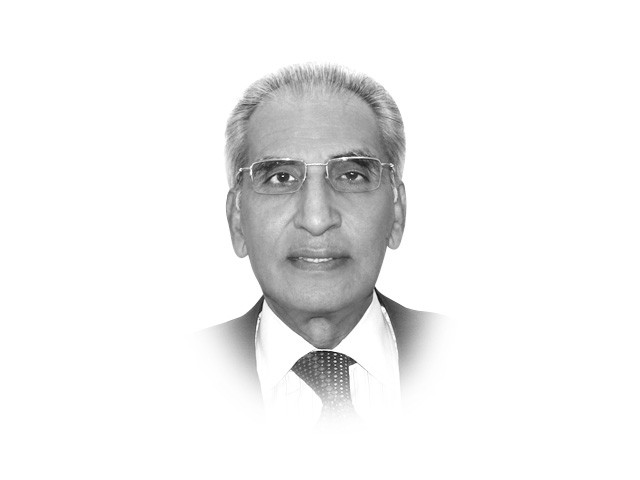A deeply flawed decision
If an amendment is to be made, it should be to bar a foreign national from occupying any office of profit in Pakistan.

A deeply flawed decision
Admittedly, the majority of overseas Pakistanis are patriotic and committed to the welfare of the homeland. They deserve our appreciation, not merely in words but through measures to encourage them to acquire property, invest in business and to involve themselves in humanitarian and charitable activities in a manner similar to the critical role played by overseas Chinese in the economic uplift of the mainland.
Some countries have extended the right to vote to those who have acquired another citizenship while still retaining citizenship of their country of origin, but there is a fundamental difference between the right to vote and the right to hold public office. The right to vote is a one-time exercise that involves neither residence in Pakistan nor long-term involvement in its affairs. Citizenship, however, is synonymous with deep attachment, a profound sense of pride and an unshakeable commitment to the state’s interests. These sentiments cannot be shared with another state. There is also the issue of loyalty, as evident from the requirement that approval of a foreign born applicant’s citizenship requires surrender of former nationality or, at the least, swearing of allegiance to the new state’s constitution. In the case of the United States, the applicant also has to promise to bear arms in its defence, which explains why the US, though recognising dual nationality, does ‘not encourage it’.
Supporters of this amendment have argued that overseas Pakistanis send large sums of money back home. This is true, except for the fascinating revelation that as a percentage of their earnings, it is the workers in the Middle East and Gulf, who are our biggest source of home remittance. The rich and affluent in the US and Europe, who are keen to offer their ‘enhanced expertise’ to Pakistan are sending much smaller percentages of their income.
It may also be noted that Western countries offer their nationalities primarily to skilled individuals or to those bringing in substantial sums of money. In other words, these individuals are buying this ‘privilege’ not because of their desperate economic straits or on the spur of the moment but after years of deep reflection. On the other hand, the overwhelming majority of Pakistanis based in the Middle East and Gulf have gone there not in expectation of acquiring foreign nationality (it is hardly ever given) but as a desperate economic move. In other words, Pakistanis who have acquired foreign nationalities have taken a deliberate decision to turn their backs on their homeland to take advantage of greener pastures elsewhere. We should not grudge them this, but since they have chosen loyalty to new qiblas, they should not seek to fish on both banks. Their ‘flirtation’ with Pakistan — rather than long-term commitment to it — is evident from their swift return to the security of their foreign passports and the comfort of their newly-adopted homelands as soon as their ‘employment’ in Pakistan ends. This has led to the observation that these people owe allegiance neither to their homeland nor to their adopted homes.
In any case, changes to law and especially amendments to the Constitution should not be treated in a cavalier fashion. And under no circumstances should transient considerations meant to favour only a few be taken at the cost of the nation’s interests.
It is most dismaying that an elected government should author an amendment in the law to benefit those who have taken foreign citizenship as an insurance policy because of their doubts and misgivings about the future of Pakistan. Should such individuals be sitting in our legislatures and determining our destiny? If an amendment is to be made, it should be to bar any foreign national from occupying any office of profit in Pakistan.
Published in The Express Tribune, July 11th, 2012.
















COMMENTS
Comments are moderated and generally will be posted if they are on-topic and not abusive.
For more information, please see our Comments FAQ